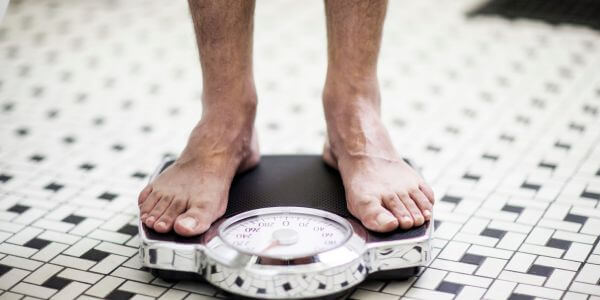Health Hub
Bariatrics surgery myth-busting: 21 myths addressed

Rumours spread. Some rumours persist, becoming myths. Claims about people and things – surprising, spurious, consequential. Sometimes rumours become ‘facts’, received wisdom, despite the fact that not only are they unverified, but they’re actually false. This might not matter if it’s an innocuous rumour about a popstar, but when it comes to health care, the consequences can be life and death.
There are many rumours, even myths, surrounding bariatric surgery. These falsehoods about weight loss surgery may be hindering people from improving their health and happiness. We want to bust these myths and help people make informed decisions that improve their quality of life. So, we spoke to esteemed bariatric surgeon Mr Myutan Kulendran to challenge a number of claims, rumours, and myths about bariatric surgery. Some of the myths are true, most are false and some, well, it’s complicated… Luckily Mr Kulendran is on hand to explain.
A quick definition: What is bariatric surgery?
Bariatric surgery, also known as weight loss surgery, is a medical procedure performed on people who are severely overweight or obese. The primary aim of bariatric surgery is to help individuals lose weight by reducing the size of the stomach or bypassing part of the digestive system.
Get in touch if you’re interested in finding out more about bariatric surgery
Myth 1: Bariatric surgery is a quick and easy fix for obesity
This is a tricky one. If you want to lose weight in a safe manner, bariatric surgery will almost guarantee you will lose weight. In the first 18 months, a lot of the weight loss is from the surgery itself. And so, I think it sort of is a quick fix for a lot of people.
However, you need all the other tools to go with it, for example, changing your eating habits, and minimising psychological stresses. The surgery itself is a quick fix, but you need to support it ongoing with appropriate lifestyle and behaviours.
READ: Weight Loss Surgery: What are the Options?

Myth 2: Bariatric surgery is very risky
All the evidence shows bariatric surgery is very safe. The chance of you dying from having a weight loss operation from a person who does it regularly it’s 0.05%. The risk of severe complications is lower than having your gallbladder removed.
READ: Losing weight safely: advice from a bariatric surgeon
Myth 3: Bariatric surgery has nasty side effects
There are, of course, some side effects. Patients may have acid reflux or heartburn after a sleeve gastrectomy. Some people get increased bowel frequency or diarrhoea after bypass, but these things can be medically managed.
The benefits are weight loss, a better quality of life, reduced medical problems as people age, and increased life expectancy by 10%. So, for most patients, these side effects are outweighed by the benefits of weight loss.
Myth 4: You will never regain weight after bariatric surgery
You might gain some weight again after surgery, but that might happen 10 to 15 years down the line. If you don’t continue exercising, and don’t continue your improved eating habits, you will gain some weight, but that is over the long term. And, even if you gain weight, it is rare to go back to your original weight.
If you gain weight soon after surgery, it means that the surgery has gone wrong. There’s a very small subset of people – 2-3% – who don’t respond to surgery.

Myth 5: Bariatric surgery can lead to nutritional deficiencies
That is correct. Bariatric surgery changes how your body processes food so there’s a risk of nutritional deficiencies. It’s not just about macronutrients like fats, vitamins, carbohydrates, and proteins. You also need to ensure your micronutrients are adequate because the transit through the bowel is quicker, leading to less absorption. This is particularly true of bypass operations, where parts of the jejunum and ileum are bypassed, areas crucial for nutrient absorption.
This is why we recommend vitamin supplements, such as a multivitamin, specifically vitamin D, calcium, folate, and vitamin B12.
So yes, you will become deficient if not monitored, but with annual blood tests and proper supplementation, it’s manageable and worth it for the surgery’s benefits.

Myth 6: Bariatric surgery is not necessary. People can lose weight with diet and exercise alone.
Of course, some people can lose weight through diet and exercise, especially those with a very low BMI, but it’s not feasible for everyone. For individuals with a very high BMI, physical exercise can be extremely challenging. This could be due to physical limitations or even cardiac problems that reduce exercise tolerance. In these cases, bariatric surgery offers a viable solution to help reduce weight and alleviate associated health issues.
Myth 7: Bariatric surgery is only for the morbidly obese
A BMI above 30 indicates that a person is obese. Above 40 means they’re morbidly obese. We will not operate on someone with a BMI of less than 35. The exception is for individuals from the South Asian subcontinent who develop metabolic problems at a lower BMI.
Myth 8: Bariatric surgery leads to excessive, unsightly skin
This does not happen to everyone – it depends on the individual. Those who are very large and already have an overhanging abdomen might experience this more. Younger individuals are less likely to have this issue.
If it does occur, it is advisable to plan and maintain a stable weight for about a year to 18 months post-surgery before considering any corrective surgery for the excess skin.
Myth 9: Bariatric surgery negatively affects fertility
On the contrary, bariatric surgery can actually increase fertility. The concern is that patients might become pregnant too soon after the surgery, which can lead to deficiencies in folic acid and iron, potentially causing issues like neural tube defects in the child. Therefore, we advise waiting at least a year post-surgery before attempting pregnancy to ensure the body has adjusted properly.

Myth 10: Bariatric surgery is very expensive
It’s not a cheap procedure and of course, the cost will reflect the quality of care you choose: the surgeon’s expertise, and the facility where the surgery is performed. While it’s possible to find cheaper options, often through medical tourism, this can lead to complications and unsatisfactory results. It’s essential to consider the value of the investment in your health when considering bariatric surgery. Like all things in life, you tend to get what you pay for.
Spread the cost of private treatment with our tailored and flexible payment plans
Myth 11: Everyone who undergoes bariatric surgery will experience dumping syndrome
That’s true, however, dumping syndrome can actually be seen as beneficial because it contributes to weight loss.
What is dumping syndrome? After weight loss surgery, your stomach is smaller, which means food transits faster through the stomach. This rapid transit, especially with carbohydrates, causes them to hit the small bowel sooner. When that happens, there’s an osmotic effect causing fluid to leave the body, leading to symptoms like light-headedness, crampy abdominal pain, and an increased heart rate. Most people may experience it to some degree, though many have no symptoms. It’s quite rare to have severe symptoms, but if it occurs, it can often be managed medically with adjustments to your diet, medication, and sometimes a reoperation or an endoscopic procedure.
Myth 12: Only adults can undergo bariatric surgery
I’m cautious about operating on people who are too young. Anyone under 21 is generally a no-go. For those at university age, it really needs to be a joint decision-making process with parents. This is based on my experience and my PhD research on weight loss in adolescents. The concern with adolescents is that their brains and bodies are still developing, including their perceptions of themselves and their bodies. You don’t want them to undergo a permanent operation that they might regret later. It’s crucial to evaluate each case individually, but there’s definitely such a thing as being too young for surgery.
Myth 13: Bariatric surgery has a long recovery period
Actually, recovery time is quite quick. It’s a keyhole operation, leaving you with small incisions about the width of my little finger. Patients typically leave the hospital the next day or the day after, unless they have other medical issues.
The main complaint post-surgery is not pain but hair loss, which is due to micronutrient deficiencies. Patients are put on a special diet before the operation to shrink their liver, and this diet can lead to deficiencies. However, the recovery from the surgery itself is relatively quick, and patients are up and about soon after.
Myth 14: Bariatric surgery leaves you in constant pain
It shouldn’t. However, I do inform my patients that there’s a chance they may experience some form of chronic pain, but it’s not constant or severe. It’s more of a nagging pain that might occur from time to time, and it’s more common with the bypass than the sleeve gastrectomy. It’s something we can’t always explain, but it’s manageable. However if you have pain after surgery it does need investigation as it isn’t the norm.
READ: Find out more about Gastric Sleeve Surgery

Myth 15: Bariatric surgery negatively affects mental health
On the contrary, bariatric surgery generally has a positive impact on mental health. It’s essential, however, to assess each patient carefully and make decisions on a case-by-case basis. While there is an increased risk of suicide among patients with certain psychological conditions, the overall wellbeing of most patients improves significantly post-surgery.
We operate within a multidisciplinary team setting, which means that each patient is evaluated not just by me but also by a dietitian. We screen for significant psychological comorbidities, and if a patient has a significant psychological issue, we ensure that they receive counselling.

Myth 16: Bariatric surgery is a new and untested procedure
This is definitely not accurate. Bariatric surgery has been well-tested over many years, which is why it continues to be a popular and trusted option.
Myth 17: You must be a minimum weight to qualify for bariatric surgery
Yes, there’s a minimum requirement. We will only operate on people with a BMI of 35 or over, who have a metabolic condition, or anyone with a BMI over 40. However, it’s essential to consider each patient on an individual basis, as the need for surgery goes beyond mere numbers. It’s about improving the patient’s quality of life and addressing specific health concerns, following the NICE guidelines.
Myth 18: Bariatric surgery leaves you with a lot of scars
Scarring is minimal. The surgery is performed laparoscopically, meaning it’s a keyhole surgery that results in much smaller scars compared to traditional open surgery. Over time, these scars are barely noticeable.
Bariatric surgery used to be more invasive, but with advancements in medical technology, we’ve moved towards less invasive techniques. These techniques are just as effective but have a quicker recovery time and mean less scarring.
Myth 19: Bariatric surgery is purely cosmetic
That’s a common misunderstanding. While it does lead to significant weight loss, which can improve appearance and self esteem. However the primary goal is to address health issues related to obesity, such as diabetes and heart disease. It’s a medically necessary procedure for many individuals, not just a cosmetic one.
Myth 20: You can’t exercise after bariatric surgery
In fact, exercise is crucial. It complements the surgery by helping to improve metabolism, maintain weight loss, and enhance overall health. It’s not optional, it’s an integral part of the success of bariatric surgery.

Myth 21: You can eat the same things after surgery
No, your eating habits will change significantly after surgery. You won’t be able to eat the same way as before, and your food preferences may change. These adjustments are necessary for the surgery’s success and maintaining long-term health benefits.
Get in touch if you’re interested in finding out more about bariatric surgery
Article Sections
Latest Hospital News
Should you wish to speak to our press team, please visit Press Enquiries





